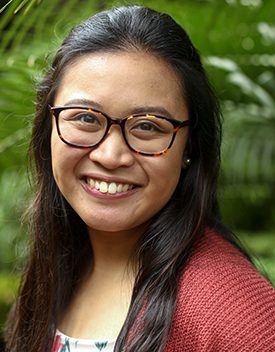Sara Teemer Richards
IGC FELLOW | Global Change Center
Ph.D. Candidate • Biological Sciences
Research Interests: Disease ecology, behavioral ecology, and microbiology
Advisor: Dr. Dana Hawley
steemer@vt.edu

Sara completed her B.S. in Biology Education from DePaul University in 2016. During that time, she conducted research on development and site preference in the parasitic copepod Naobranchia lizae in its fish host, striped mullet. She went on to publish this research in an undergraduate journal and presented at numerous conferences at the local and regional level. Sara combined both her passion for biology and education through positions with the Prairie Crossing Learning Farm, Illinois Department of Natural Resources, and Lake County Forest Preserves.
Following her undergraduate studies, Sara received an M.S. in Biology from DePaul in 2019. Her thesis examined modification of host behavior and transmission of the parasite Acanthocephalus dirus, and the effects of development, intraspecific conflict, and host sex on the parasite-host relationship. Her thesis and various projects included field work and designing assays for measuring behavior, specifically with aquatic and terrestrial isopods. In addition to her research, she served as a teaching assistant for over one dozen undergraduate courses, including ecology, biostatistics, field studies in marine and estuarine biology, and physiology.
As a PhD student, Sara seeks to work at the intersection of behavior, disease, and conservation. Her project investigates the role of the host microbiome and its influence on disease transmission at the population level. The project incorporates techniques in disease ecology, behavioral ecology, and microbiology and may hopefully provide insight to prevalent conservation issues. Sara plans to utilize the collaborative and interdisciplinary nature of the Interfaces of Global Change to develop strategies for effective science communication. She strongly believes that scientists have a pivotal role in addressing ecological issues, and that many of those problems are also social issues. Thus, she finds that the ability to communicate to a wide audience is critical to finding solutions, and that these conversations often start in a classroom.






